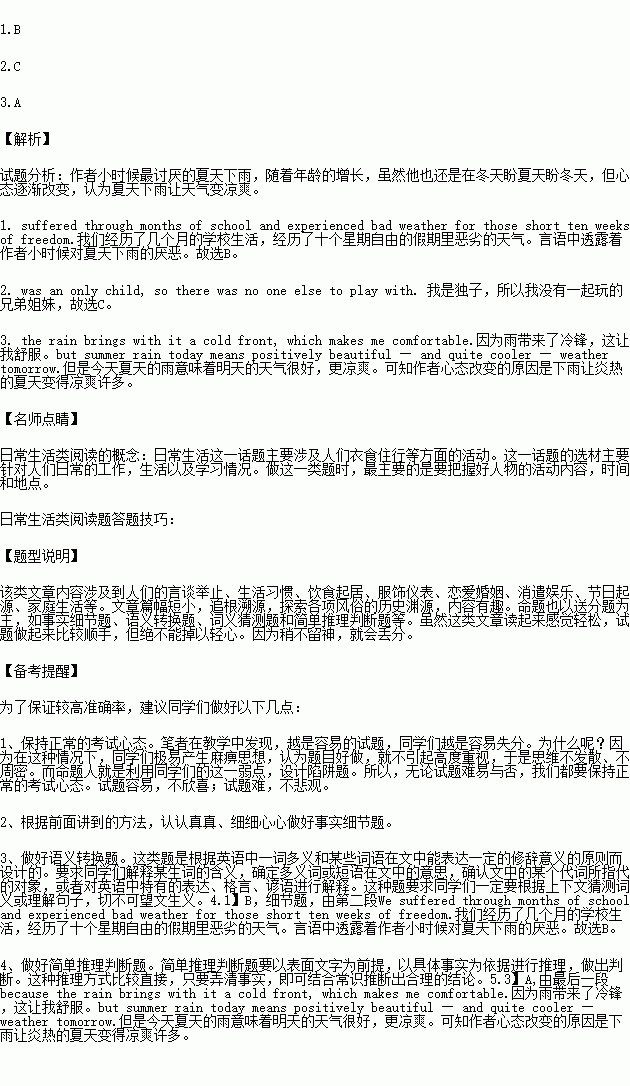题目内容
The worst days of any summer are the rainy ones. We spend all year looking forward to nice weather and long, hot days. In winter, with its cloudy days and bitter cold, we dream of those days at the beach, lying on the sand and enjoying the bright and burning sun. And then, summer comes, and it rains.
As a child, I would wake up to rainy summer days and come close to crying. It wasn’t fair. We suffered through months of school and experienced bad weather for those short ten weeks of freedom.
On those rainy summer days, I had nothing fun to do and could only sit inside, staring out at the rain like a bird in a cage. I was an only child, so there was no one else to play with. My father worked from home, so I was not truly alone, but he could not actively play with me since he was at work. It was those days that I would watch whatever was on television or read any books that I could find lying around. I’d pray each night that the rain would not be there the next day.
As an adult, though, my opinion of summer rain has changed. When you have to work every day, summer is not as exciting. Everything seems uninteresting. Such a mindset makes you cheer for anything new or different. I spend the winter dreaming of summer and the summer dreaming of winter. When summer comes, I hate how hot it is. And then I look forward to the rain, because the rain brings with it a cold front, which makes me comfortable. Rainy days are still the worst days of the summer, but summer rain today means positively beautiful — and quite cooler — weather tomorrow.
1.When the author was a child, he ______.
A. liked staying indoors B. hated rainy days
C. dreamed on summer days D. preferred cooler weather
2.We can learn from the passage that the author ______.
A. could enjoy the brilliant sun in winter
B. preferred reading to playing outside
C. had no brothers or sisters
D. was often left alone at home
3.As an adult, the author views summer rain differently because ______.
A. rain makes the weather cooler
B. his summer holiday is very short
C. he knows it won’t last long
D. he can better deal with his spare time


 me she came, ________ beginning the lesson right away, she would first play some _______ . She said, “To learn the piano, you should learn not only the ________of playing, but more importantly, to ________ the music and love it.”
me she came, ________ beginning the lesson right away, she would first play some _______ . She said, “To learn the piano, you should learn not only the ________of playing, but more importantly, to ________ the music and love it.”